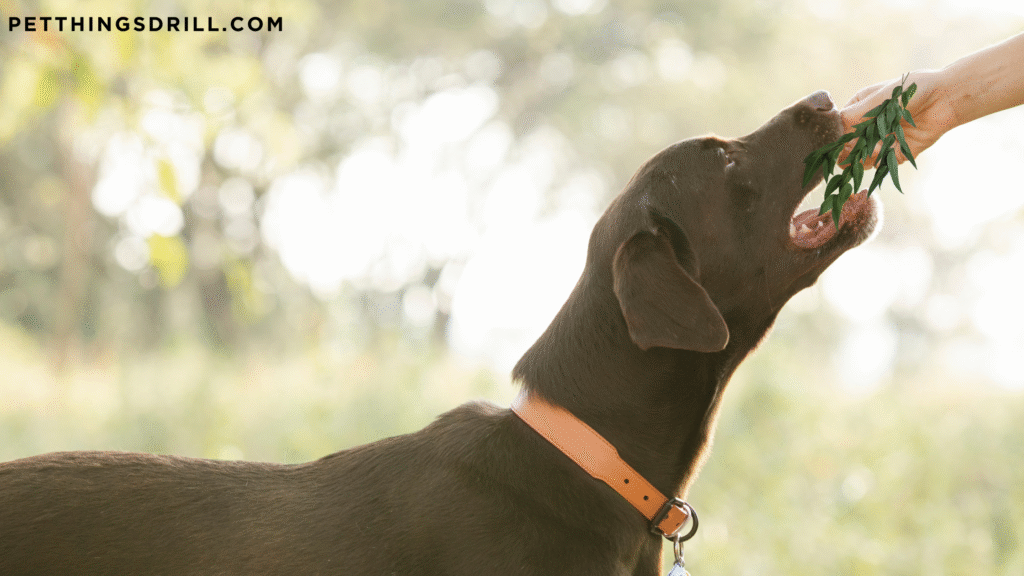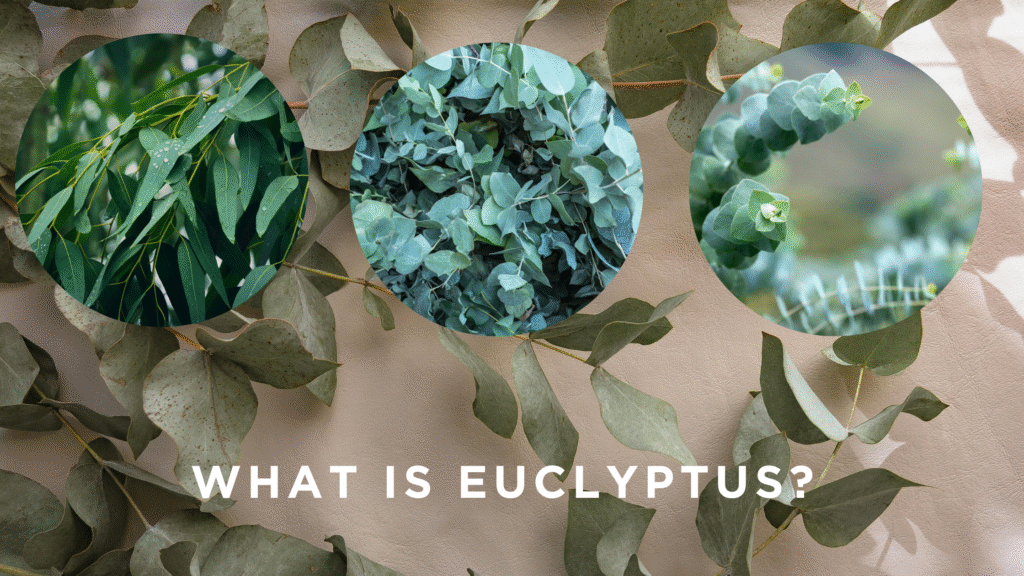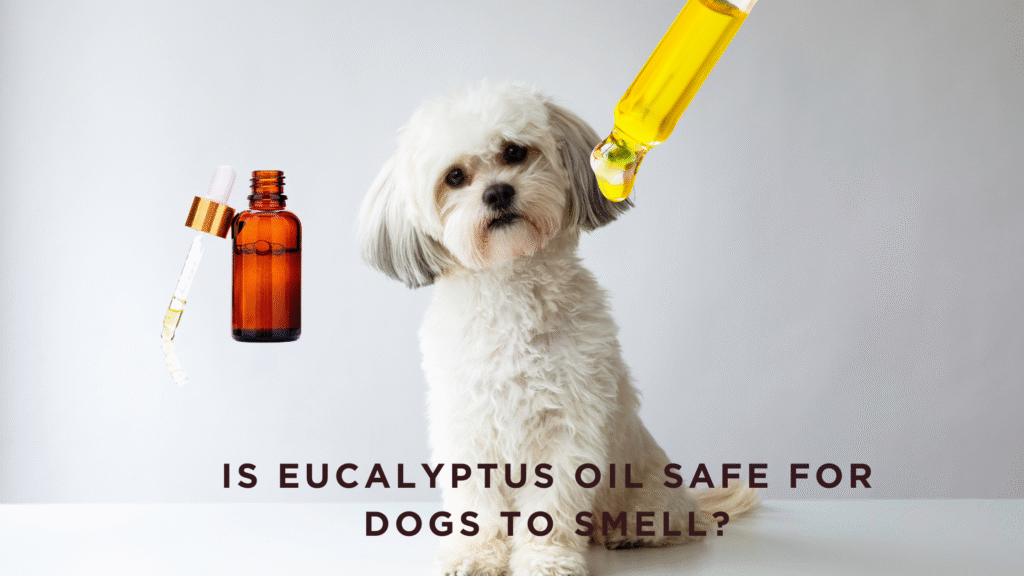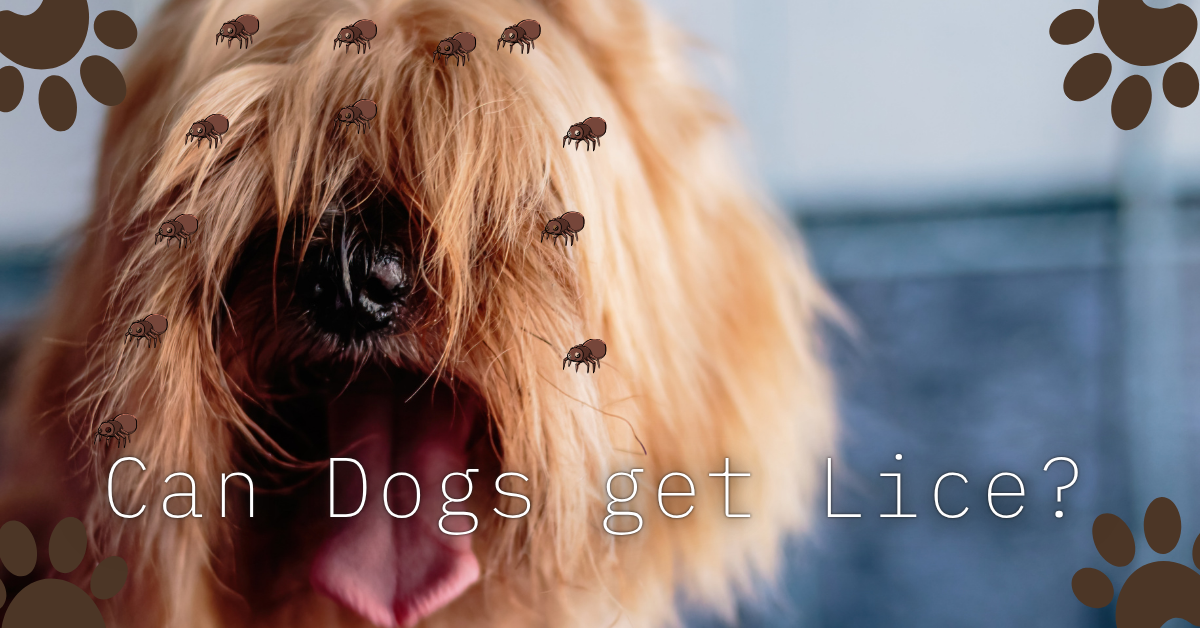


Is eucalyptus safe for dogs? Eucalyptus has been a part of the world of medicine for centuries. Its aroma is captivating and conceals several health benefits. Fun Fact: Eucalyptus is one of the favourite foods for koala bears. The question is, can we say the same for our four-legged friends? In this article, we will explore the most popular questions asked by many pet owners: is eucalyptus safe for dogs? People use Eucalyptus in various ways, including as an essential oil. Read this extensive guide and know everything there is to know when it comes to eucalyptus and canines.
What is eucalyptus?

The first thing you need to know before I answer is eucalyptus safe for dogs? Is what eucalyptus is. It is an aromatic plant that has Australasian roots. Eucalyptus offers high-quality resin and timber. The oil extracted from the eucalyptus is also very crucial.
Types of eucalyptus:
The following are 6 commonly found eucalyptus species in different regions of the world:
- Eucalyptus Peppermint:
This Eucalyptus is also called Eucalyptus dives. It is the most commonly found type. Moreover, It has a strong smell that is used to repel insects. It is also used in balms offering relief in cough and flu illnesses.
- Lemon Eucalyptus:
The type of eucalyptus contains P-Menthane-3,8-diol therefore it has a lemony smell. These eucalyptus types also repel multiple insect species. Its concentration is used in a diluted form to keep the homes and buildings free from pests.
- Globulus Euclyptus:
This type is also known as blue gum. The euclyptus has been used in medicines against bronchitis, asthma, and chronic obstructive pulmonary disease, and as an antiseptic.
- Blue Leaved Mallee:
It is also known as Eucalyptus Polybractea. It has originated from southeastern Australia. The plant can grow 8 to 10 meters in size and has flaky bark with leaves shaped like a lance. The plant is used as an essential oil. Besides that, it can easily grow in drought-like situations.
- Radiata:
This eucalyptus is also known as Narrow-leaved peppermint. Just like its sister species, this is also found in Australia. This one has a unique shape. Radiator plant grows up to 10 to 50 m. The bark of the plant is flaky and grey in color, with branches protruding; the leaves are linear in shape. It has been used in various medications for multiple diseases. Its major use is as an essential oil.
- Bicostata:
This subspecies of eucalyptus is also known as Victorian blue gum. It has a smooth bark with juvenile and shaved leaves. The tree can grow up to 45 m and has a lush green color. It is commonly used at food sources for animals, and it is also a great insecticide
Is Eucalyptus safe to consume by dogs?
Sadly, eucalyptus is a highly toxic plant for dogs; therefore, its consumption is prohibited. Eucalyptus plants contain an element called Eucalyptol that can severely impact the gastrointestinal health of dogs and cause severe diarrhoea and vomiting. Moreover, upon consumption, it can also impact the liver and nervous system of the canine.
Is eucalyptus oil safe for dogs to smell?

Eucalyptus oil’s strong scent can be overwhelming for a dog’s sensitive nose, even if it doesn’t cause immediate toxicity. Some dogs may show signs of discomfort or stress simply from being near the aroma. If you notice your dog avoiding the area or behaving unusually, it’s a clear sign that the scent may be too much for them.
Signs of eucalyptus poisoning?
Although dogs are very expressive pets. They have their way to communicate with their humans. Figuring out if the dog has accidentally consumed eucalyptus is very important, as it can not tell on its own. Look out for the following signs and symptoms of eucalyptus poisoning in your four-legged friend:
- The dog starts drooling profusely. It would seem that your canine is unable to control the amount of saliva coming out of its mouth.
- Loose motion and diarrhea are other prominent signs of your dog being sick. Upon coming in contact with a toxic compound, the body tries to get rid of it as soon as possible. Hence, diarrhea, and vomiting are the fastest way to do so.
- A significant drop in energy can be noticed in dogs. Dogs remain lethargic and tired and try to avoid movement as much as possible.
Usually, the symptoms reside on their own. However, upon noticing the following signs, you should rush to the doctor almost immediately:
- If you find your dog in a state of profound confusion after consuming the eucalyptus.
- Contact the vet immediately if you notice frequent seizures.
- Another dangerous sign is dropping blood pressure or a lowering of the pulse.
- Call your vet as soon as possible if the pupils of the dog appear smaller than usual.
Treatment of eucalyptus poisoning:
You should visit your doctor as early as possible. Upon reaching the hospital, here are some treatment options that doctors may opt for:
- The doctor will offer activated charcoal as it can absorb all active traces of eucalyptus and keep the dog at ease.
- The canine will be placed on IV fluids to cope with dehydration.
- If the eucalyptus is consumed in large amounts, the doctors would try pumping the stomach. This will wash it off and eliminate all traces of eucalyptus
- Besides that, doctors offer as much supportive care as possible via medications that mask the symptoms and bring comfort to the dog.
Frequently Asked Questions:

Can you use eucalyptus oil for dogs?
The answer to this question is a bit complicated. While some sources completely prohibit eucalyptus oil usage for the dog. There are a few that allow eucalyptus essential oil to be used, but under veterinarian supervision. Typically, topical usage is permissible in the most diluted form.
Is it safe to use eucalyptus diffusers around dogs?
For all those asking: Is eucalyptus essential oil safe for dogs in a diffuser? Breathing the air that is diffused by eucalyptus essential oil is not a good idea for canines. I guess this is the compromise you have to make as a pet owner to avoid the eucalyptus diffuser as much as possible. Make sure that your dog is not in the room where the eucalyptus oil is used in the diffusers.
Are essential oils safe for dogs?
Generally, essential oils are marked as unsafe and poisonous for dogs. However, sometimes doctors advise the use of some oils to prevent tick, lice, and mite infestation. Some essential oils are also used to maintain a lustrous and healthy coat in a few dog breeds. Nevertheless, it is important that you consult your vet before exposing your furry friend to any essential oil.
What are some dog-friendly essential oils?
Here is a list of essential oils that are generally considered safe by vets. However, I still advise calling your vet before using any of the following in a dog-friendly household:
- Chamomile.
- Orange Bergamot:
- Citrus.
- Sweet Birch.
- Laender.
- Oregano.
- Pine.
- Thyme.
- Ginger.
Is eucalyptus safe for dogs to smell?
Eucalyptus is not safe for dogs to smell, especially in concentrated forms like essential oils. Even inhaling the fumes can cause respiratory irritation and many other aforementioned issues.
Is peppermint and eucalyptus safe for dogs?
Peppermint and eucalyptus are both potentially harmful to dogs, especially in their essential oil forms. Inhaling or coming into contact with these oils can lead to serious symptoms.
Is lemon eucalyptus oil safe for dogs?
Lemon eucalyptus oil is also not safe for dogs. It contains compounds like citronellal and eucalyptol, which can be toxic to dogs if inhaled, ingested, or absorbed through the skin.
Conclusion:
Eucalyptus has been used by humans for a long time. However, using it on or around dogs is not a wise choice. Our curious yet love;y readers keep asking me my thoughts on the highly rooted question that is eucalyptus safe for dogs? The answer leans towards caution—while it offers benefits for humans, eucalyptus can be toxic to dogs when ingested or inhaled in concentrated forms.

